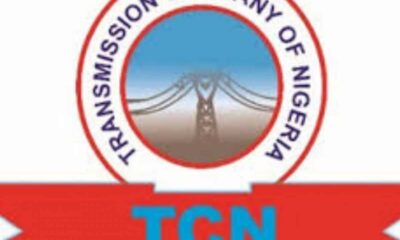Energy
IBEDC decries N130m monthly revenue loss to illicit meters
The Ibadan Electricity Distribution Company (IBEDC) has decried the monthly loss of over N130 million revenue due to use of “illicit meters” by some electricity consumers.
IBEDC Regional Manager for Osun,Mr Oluwatoyin Akinyosoye, condemned the practice at a stakeholders’ town hall meeting on Wednesday in Osogbo.
Akinyosoye said that the town hall meeting was organised to draw attention of the consuming public to those who engage in the sabotage of its operations.
According to him, in Osun there are 15,000 illicit meters causing the company an average revenue loss of N130 million on monthly basis.
“To us as a company, this is huge loss in our revenue because this illicit meters consume energy on our network, but the revenue is not coming to us.
“If we can curb the use of these illicit meters, then we can take the revenue back to the company, improve on our network and embark on other metering interventions to serve our customers,”he said.
The Regional Manager said that the unregistered meters were not supplied to consumers by the company, explaining that IBEDC had different intervention on metering through which customers could obtain their meters.
He said customers could get metered through “meter self provider” whereby customers pay and get metered and the cost of the meter would be refunded to them over a period of time.
Akinyosoye also said that prospective customers could benefit from the IBEDC roll out meter intervention, whereby meters were given to customers for free.
He said that the recently concluded national mass metering programme by the Federal Government was another avenue customers could get meters.
“As a company, we have stopped this Non-Standard Transfer System meter in 2013.
“So every of this meter, that you have to use a card before you can load and that was installed between 2013 till now are illicit meter,” the official said.
Akinyosoye advised electricity consumers who have such illicit meters to visit the IBEDC to find out how it could be replaced.
“But any customer that we discover using the illicit meter would have his or her supply disconnected, charged for loss of revenue, pay for penalty and of course face prosecution,” he said.
Some of the IBEDC customers at the meeting who spoke with NAN urged the company to do more to serve them better.
Energy
Shell signs agreement to build gas pipelines in Oyo State


Shell Nigeria Gas, SNG, and the Oyo State Government have signed an agreement to develop a gas supply and distribution infrastructure that will deliver gas to industrial and commercial users in the state.
A statement released on Friday by Shell Nigeria’s Media Relations Manager, Abimbola Essien-Nelson, disclosed that SNG will build and operate the gas distribution network, which will serve customers across Oyo State for 20 years.
According to the statement, the project will start with the construction of gas distribution infrastructure along a 15km pipeline route, adding that it will grow to deliver up to 60 million standard cubic feet of gas per day across the state.
Speaking at the signing ceremony, the Oyo State Governor Seyi Makinde, described the project as a catalyst for development in the state.
The Managing Director of SNG, Ralph Gbobo, noted that the agreement was “a significant milestone for SNG and Oyo State to boost economic activities in Nigeria by supplying industries and manufacturers with natural gas, a more reliable, cost-efficient and environmentally friendly source of energy.”.
He explained that the project would boost Oyo State’s internal revenue and create Job opportunities for indigenes.“
“The Managing Director of The Shell Petroleum Development Company of Nigeria Limited and Chairman, Shell Companies in Nigeria, Osagie Okunbor, remarked that the event pointed to the value of partnership as “Shell continues to power progress” in Nigeria through more and cleaner energy solutions for commercial and industrial customers.
Energy
Nigeria ripe for nuclear power to boost electricity generation – NAEC


The Nigeria Atomic Energy Commission (NAEC) in collaboration with Centre for Energy Research and Training (CERT), Ahmadu Bello University (ABU), Zaria would deploy nuclear science and technology to strengthen electric power generation in Nigeria.
Prof. Yusuf-Aminu Ahmed, Chairman NAEC disclosed this during the 20th Anniversary Symposium of the Nigeria’s first Nuclear Research Reactor-1 (NNR-1) in Zaria on Thursday.
Ahmed said the experience developed over the years on nuclear power at the centre makes Nigeria ripe and ready to go into the next level of power generation through the nuclear reactor.
“We have used the reactor for research and development over the years and now we are going to use the reactor for the purpose of generating electricity.
“President Bola Tinubu has already given the commission a mandate to see how it contributes in the clean energy sphere of Nigeria and the nuclear energy programme of Nigeria would participate,’’ Ahmed said.
He explained that the time for the project would not be open for the public; however, Ahmed added that international partners and vendors were working closely with the commission over the project.
He also said that intergovernmental agreements were signed with some of the vendors on the nuclear power in Nigeria and very soon President Tinubu would make an announcement on the issue.
Earlier, Sen. George Akume, Secretary to the Government of the Federation said the 20 years of safe operation of the nuclear research reactor was an indication that Nigeria has joined the campaign for safe application of nuclear energy.
Akume, represented by his Special Assistant on Technical Issues, Prof. Bolaji Babatunde, added that since the centre had safely operated the nuclear research reactor for 20 years, it can also obtain a nuclear reactor for electricity generation.
According to him, the process of having a reactor that would generate electricity is similar to operating a nuclear research reactor.
“President Tinubu has re-echoed the need for having nuclear energy into the sources of electric power generation in Nigeria and Nigerians should look forward to this power.
“Electricity generated through nuclear energy is clean and safe except for human errors or natural causes such as the one that happened in Hiroshima,’’ he said.
Earlier, Prof. Sunday Jonah, Director of the center said the event was to celebrate 20 years of safe operation, maintenance and utilisation of the first Nuclear Research Reactor code named NNR-1.
However, in spite of the numerous gains at the centre over the years, the Director lamented over a plot by NAEC to wrestle the centre from the university through the proposed NAEC Bill 2022.
He explained that such a move would negate the dreams of the founding fathers that established the centre in universities because of the culture of research and development being promoted at designated universities.
Energy
Alake unveils gender strategy for mining, steel sector


The Minister of Solid Minerals Development, Dr Dele Alake, has unveiled a document for Women in Mining in Nigeria (WIMIN) strategy document.
Speaking at the event, he described the strategy as a significant mile stone in the sector.
He said that the move was a demonstration of the commitment of the Ministry of Solid Minerals Development (MSMD)‘ and Ministry of Steel Development in fostering diversity.
He said that the strategy is aimed at promoting gender equality and women‘s empowerment, adding that its focused on driving productivity for the nations‘ sustainable development.
“It also focuses on improving the opportunities for women to benefit from both sectors sustainably in policy, regulatory, operational, and commercial (large scale, medium scale, small scale, and artisanal levels), and value and supply chain roles.
“This strategy is not just a document but a call to action and a blueprint for all stakeholders to create a more inclusive and gender-balanced mining and steel sector.
“It provides a guideline and framework to guide both ministries, their agencies, and stakeholders to integrate gender equality and women’s empowerment priorities in their policies, programmes, and initiatives,” he said.
He acknowledged the indispensable contributions of women to the success and sustainability of the mining sector, saying that their talents, expertise, and perspectives are critical to the success and growth of the industry.
According to him, Nigeria is not immune from the biases perpetuated against women in these two sectors.
In addressing the situation, he said that the Federal Government has prioritised gender equity and female participation in its “Roadmap for the Growth and Development of the Nigerian Mining Industry.”
He said as part of the efforts of MSMD and Ministry of Steel Development to implement the roadmap, the Mineral Sector Support for Economic Diversification (MinDiver) engaged a consultancy to develop the gender strategy.
He said that to achieve the objectives of the strategy, its institutional capacity would be strengthened for effective gender mainstreaming.
He added that that women’s participation in leadership and governance roles within the mining sector and communities would be increased.
“Promoting women’s economic empowerment and rights and eliminating all barriers (structural and systemic) that hinder women’s meaningful participation, access and control over mining resources and benefits,” he said.
The Minister added that they were committed to building partnerships across a wide range of stakeholders in achieving the vision of the strategy.
He said that the WIMIN strategy was firmly rooted in the principles of equality, diversity, and empowerment, and a call to action for stakeholders mobilisation toward a more inclusive and gender-balanced industry.
Earlier in her remarks, the National President of WIMIN, Dr Janet Adeyemi, described the launch of the strategy as an opportunity to galvanise support and implement actions to address the entrenched gender disparities within the mining and steel sectors.
Represented by the National Secretary, Mrs Emily Ofodile, she said that women within these industries continue to encounter multifaceted barriers that hinder their full participation and advancement.
On her part, the Permanent Secretary of MSMD, Dr Mary Ogbe, urged, women to be change agents at all levels, and urged all organisations to have gender focal persons to help in coordinating all related matters.
-
capital market2 years ago
Rt.briscoe, FBNH, Others halts negative performance of stock market
-
Finance3 months ago
Court orders Sen. Victor Umeh to repay N136m bank debt to AMCON
-



 Abuja Update2 months ago
Abuja Update2 months agoUNDP, FG partnership needed to achieve inclusion, equity- Minister
-
Abuja Update1 month ago
Banks drive stock market performance with N147bn gain
-



 Business2 weeks ago
Business2 weeks agoTingo Group unveils Tingo Electric, Tingo Cola drink at Lagos launch
-



 Health2 weeks ago
Health2 weeks agoCapacity training will reduce migration of health workers- NPHCDA
-
News4 months ago
Oil thieves sponsoring malicious media campaign against Navy – Spokesman
-



 Infotech1 month ago
Infotech1 month agoWorld Backup Day: NITDA urges Nigerians to ensure backup of data














